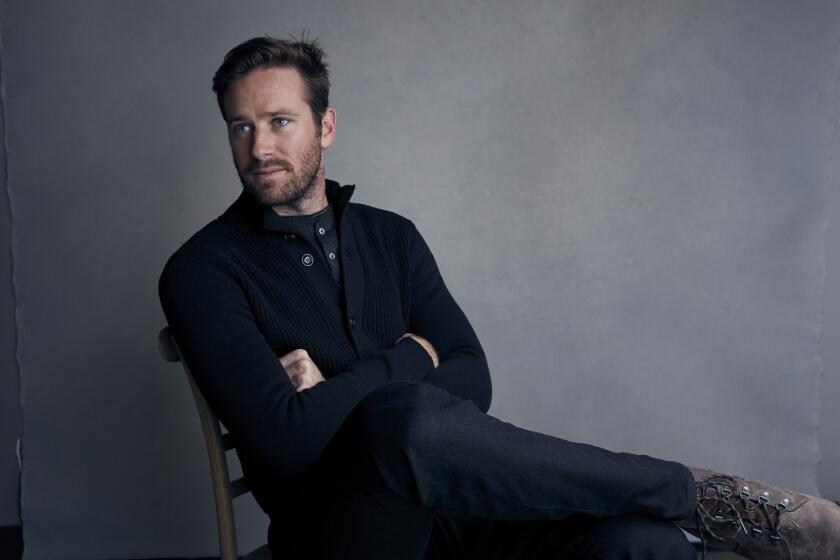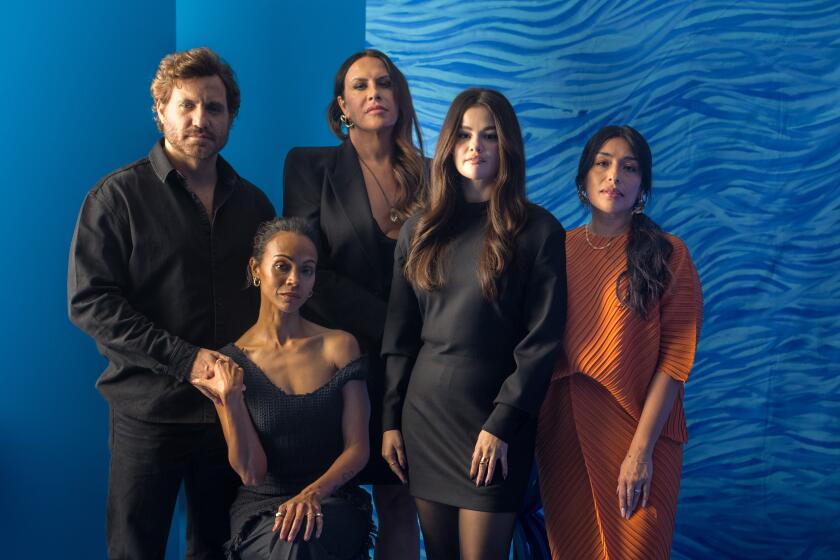‘The Flash’: How to release a movie when the star is radioactive
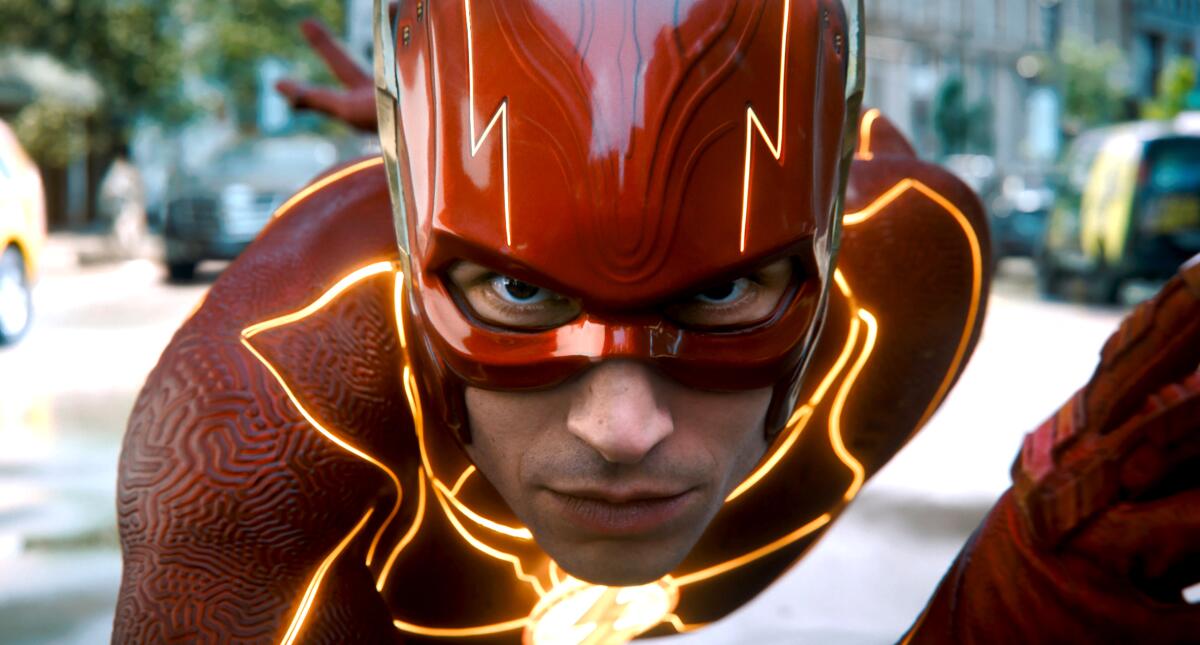
In some other part of the multiverse, Ezra Miller may at this very moment be zipping around the globe to promote “The Flash,” talking up the upcoming superhero movie in press junkets, signing autographs at fan events and cracking jokes on late-night talk shows.
In this corner of reality, however, despite positive buzz for the film and Miller’s performance as the Scarlet Speedster, the actor has been absent from the publicity campaign for the costly, high-stakes DC Comics tentpole, which hits theaters June 16. When Miller walks the red carpet at the film’s low-key Los Angeles premiere on Monday, they will pose for photos but it’s unclear whether they will answer any questions from the press.
Following months of troubling headlines about Miller’s erratic and sometimes violent off-screen behavior, including multiple arrests, Warner Bros., which is releasing “The Flash,” has sidelined the actor in an effort to shield the film from any further PR damage. In a statement released in August, the 30-year-old Miller said they were suffering “complex mental health issues and have begun ongoing treatment,” offering an apology to “everyone that I have alarmed and upset with my past behavior.”
Directed by Andy Muschietti (also of the horror blockbuster “It”), “The Flash” marks the first time Miller’s high-speed hero, who made supporting appearances in “Batman v Superman: Dawn of Justice” and “Justice League,” has been given his own big-screen vehicle. But for Warner Bros., which is in the midst of an ambitious and high-stakes effort to reinvigorate its oft-criticized DC cinematic universe, the actor’s troubles have created a volatile flash point. (Muschietti didn’t respond to multiple interview requests for this story; a representative for Warner Bros. said the studio had no comment on Miller’s off-screen issues or their future with the franchise.)
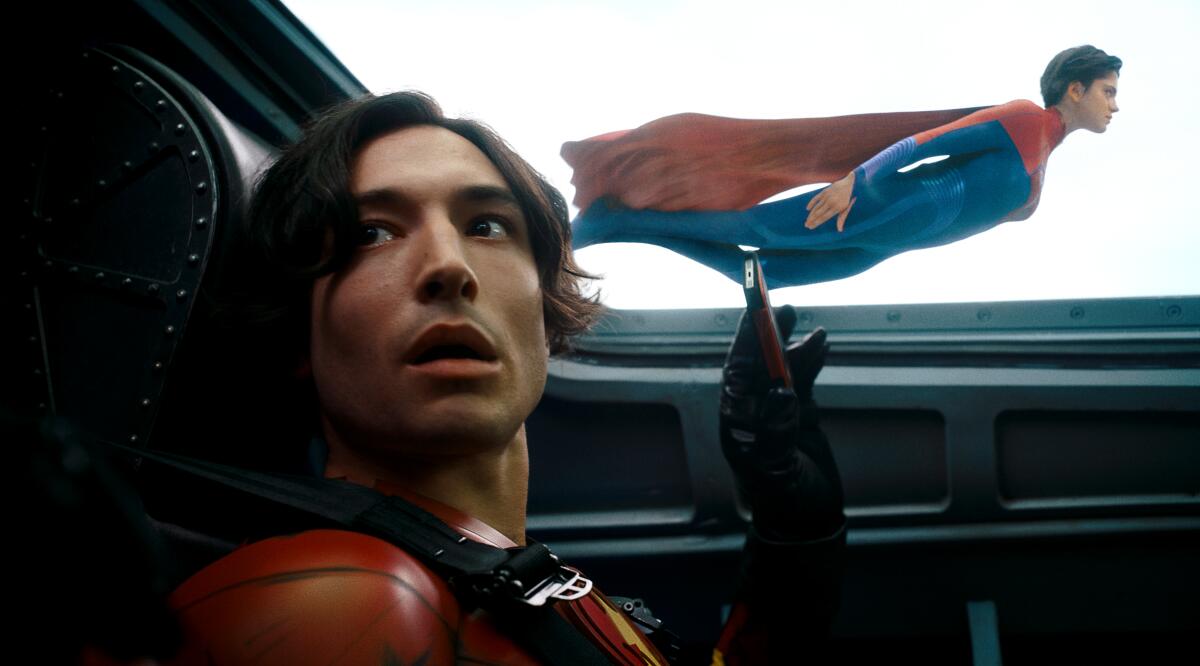
“Every few years, you have one of these unfortunate situations where a star who is inextricably linked with a character or a movie has very public off-screen issues,” says Paul Dergarabedian, senior media analyst at Comscore. “This causes the studio publicity people nightmares because it takes one more thing out of their control. ‘The Flash’ will be a case study in what happens if you can’t have the main star doing publicity.”
It remains to be seen to what extent the controversy around Miller will affect the box-office performance of “The Flash,” which cost $195 million to produce and was reported as of late last month to be tracking toward a relatively soft opening of around $70 million. Critics and early audiences have largely praised the film, in which Miller’s Barry Allen traverses alternate realities, joining forces with a younger version of himself, along with an aging Batman (Michael Keaton) and Supergirl (Sasha Calle), to try to prevent his mother’s death and save the world from the Kryptonian villain General Zod (Michael Shannon).
News Analysis: What Jonathan Majors’ dramatic rise and fall says about race and justice in Hollywood
The actor, who this week faces his first court date in a domestic dispute, may suffer more career damage than his Hollywood counterparts do. Is race a factor?
Miller, who earlier starred in 2012’s “The Perks of Being a Wallflower” and the “Fantastic Beasts” franchise, is hardly the first actor whose off-screen problems have cast a shadow over the release of a film. In February 2022, as Armie Hammer was embroiled in scandal over allegations of sexual misconduct, 20th Century Studios all but erased him from ads for its lavish Agatha Christie adaptation “Death on the Nile,” which ultimately flopped at the box office. More recently, Will Smith’s shocking, violent Oscar-night meltdown upended Apple’s plans for the period action thriller “Emancipation,” derailing its efforts to gain awards season traction.
Studios have far less leverage to manage such controversies than they did in decades past, according to Stephen Galloway, dean of Chapman University’s film school.
“In the golden era of Hollywood, stars could get away with all sorts of things and studios would hush things up,” Galloway says. “There was also a period where we sort of accepted some bad behavior from stars. Today, everybody’s hypersensitive to anything and, in the era of social media backlash, you can’t control the backlash. For Warner Bros., the question is, ‘How can we get the PR we want without Miller doing or saying something that creates a whole new flurry of bad press?’”
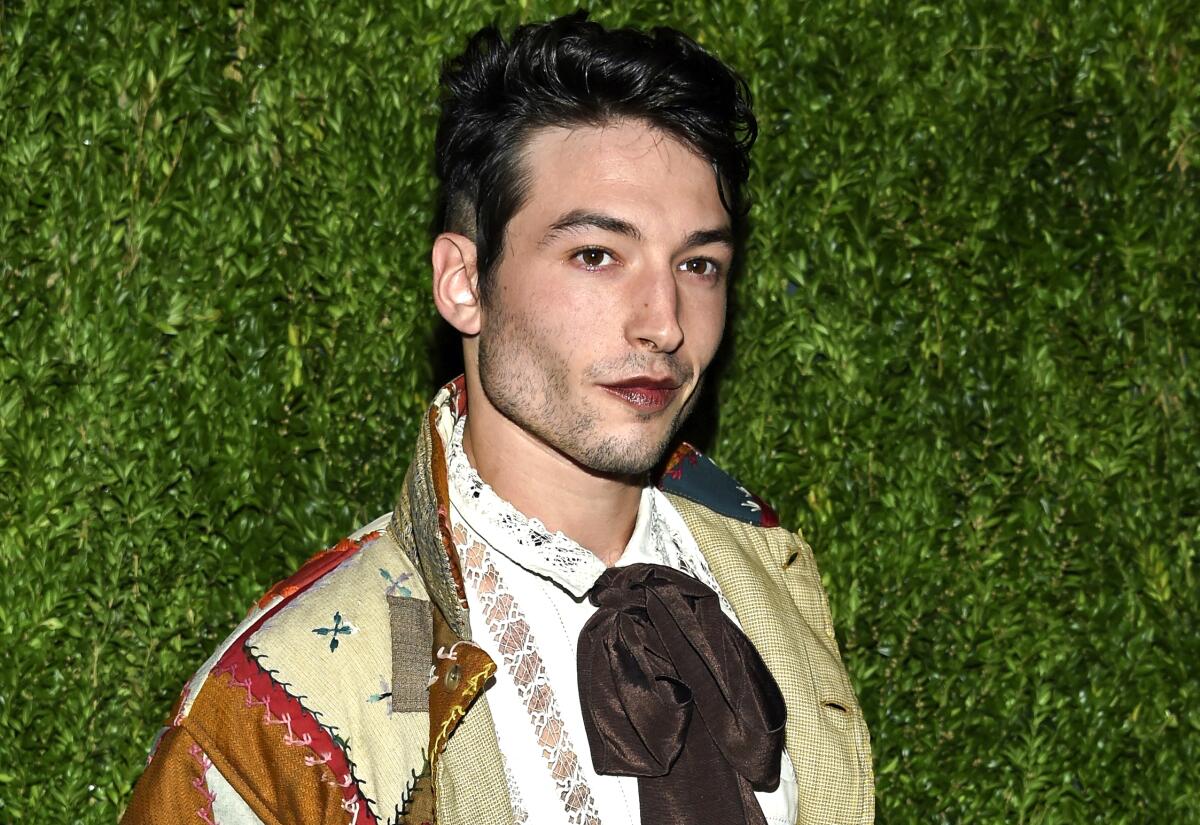
While Miller has long had a reputation for eccentricity, the actor underwent a chaotic downward spiral last year. In the spring of 2022, they were arrested twice in Hawaii, first for disorderly conduct and harassment following an altercation at a bar and then for second-degree assault after they reportedly threw a chair at a woman. In June, Miller was accused by the parents of an 18-year-old in North Dakota of using “emotional and psychological manipulation” and “cult-like behavior” to groom the girl starting when she was 12. In August, the actor was charged with a felony burglary, and reports emerged that Vermont’s child services agency was trying to find a mother and three children who allegedly had been residing at Miller’s farm.
Amid these disturbing headlines, rumors swirled last fall that Warner Bros. was considering shelving “The Flash,” as it had recently done with “Batgirl.” Ultimately, the studio decided to push ahead, banking that fans of superhero spectacle would be undeterred from seeing the film, which generated a wave of enthusiastic buzz when it was shown to exhibitors in April at CinemaCon.
Indeed, it’s unclear how much die-hard fans actually care about the drama swirling around Miller.
Elli Hakami and Julian Hobbs began ‘House of Hammer’ soon after LAPD began investigating the actor. The accuser who started it all rejects the doc.
Joe Brady, who works at Pasadena’s Collector’s Paradise comic book shop, says he definitely plans to see “The Flash.” “In terms of whatever Ezra Miller is going through, if they are working on themselves, I think that everybody deserves a second chance — maybe a third,” says Brady, who notes that many fans seem more excited to see Keaton reprise his role as Batman than Miller’s turn as the Flash. “I try not to read too much into the tabloid-y nature of it all. Celebrities are under a microscope.”
Ryan Leibowitz, co-owner of Golden Apple Comics in Hollywood, shares that sentiment. “I’m sure [Miller] has some mental health issues, but who doesn’t these days, especially after the pandemic?” Leibowitz says. “This has been a roller coaster of emotions for fans, because everyone was really excited and then there was all that bad press for Miller. But the movie looks awesome, and I think hardcore fans will see it.”
But another comic-shop employee, who asked to remain anonymous to avoid negative pushback from fellow fans, was more troubled by the allegations around Miller: “It amazes me that celebrities can be accused of the things that [they] did and be allowed to get away with it. As much as I want to see it, I can’t bring myself to give money to support that actor. I kind of hate putting shine on [their] name.”
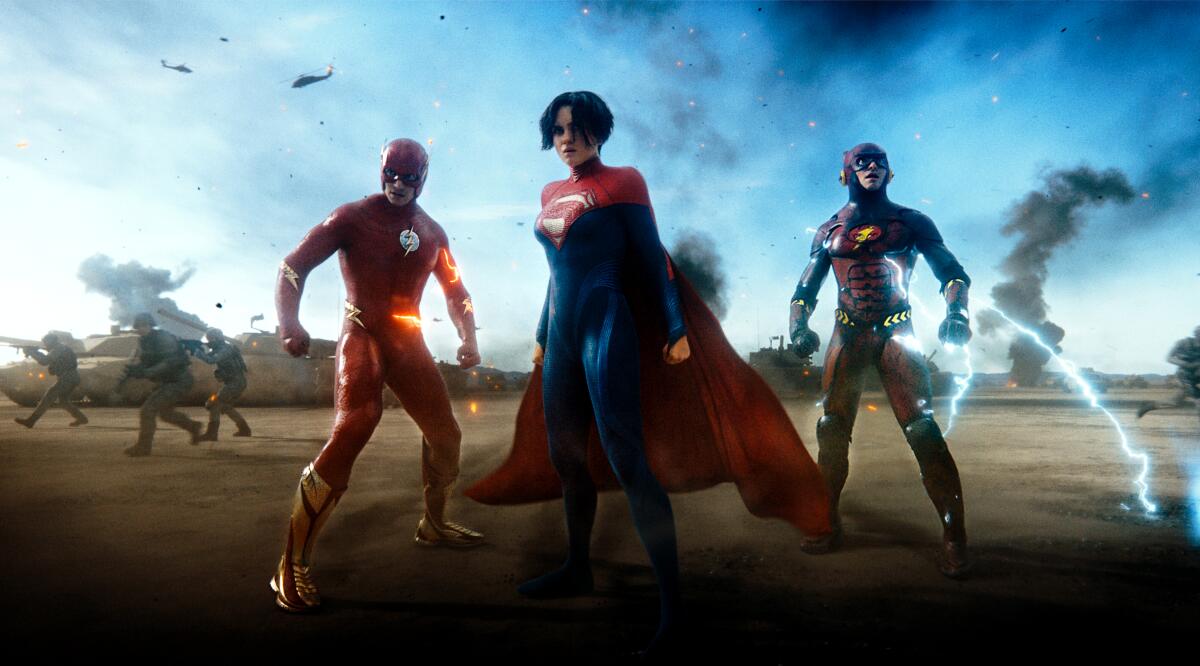
Beyond “The Flash,” Miller’s future remains an open question. The actor has a supporting role as a young Salvador Dalí in the new indie “Dalíland,” now in limited release, but Miller appears for just a few seconds in the trailer for the film, which has drawn largely negative reviews. At this point, Miller has no other greenlit projects in the pipeline.
Muschietti has publicly lavished praise on Miller, saying he would cast the actor in any potential sequel: “I don’t think there’s anyone that can play that character as well as they did,” the director said on a recent episode of the Discourse podcast. But from the studio’s perspective, Miller’s lack of a box-office track record, combined with the DC slate’s malleable multiverse conceit, could make it easier to simply swap in another actor with less baggage.
“Today [the studio reps] say, ‘We don’t have any problems, everything’s great,’” says Galloway. “But the public spin doesn’t mean that’s really what people are thinking. Behind the scenes they could be saying, ‘Quick, get me out of this.’ If you’re investing hundreds of millions of dollars in a movie that’s resting on one person’s shoulders and that person may not deliver the performance or be around for marketing, very few studios are going to want to make that investment.”
For the moment at least, some comic-book fans are only too happy to tune out all the drama around Miller.
“I’ve seen some allegations but I don’t know a ton about what they’ve done,” says Morgan Lashley Haines, who works at Collector’s Paradise. “I’m mostly excited to see Supergirl. That’s what I’m looking for.”
When it comes to superhero fandom, indifference, not controversy, may be the ultimate kryptonite.
Times staff writer Jevon Phillips contributed to this report.
More to Read
Only good movies
Get the Indie Focus newsletter, Mark Olsen's weekly guide to the world of cinema.
You may occasionally receive promotional content from the Los Angeles Times.

